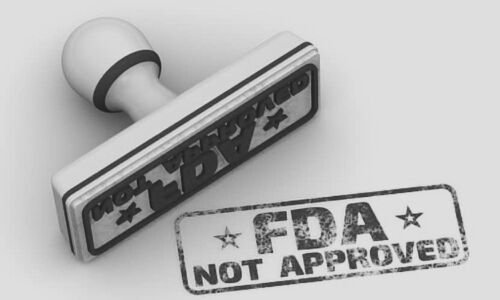USA: Noting that the drug was ineffective in treating the complication of preterm birth, the US Food and Drug Administration (FDA), in its recent announcement, has decided to withdraw approval of Makena, hydroxyprogesterone caproate injection, and its generic versions. The decision was issued jointly by the FDA Commissioner and Chief Scientist.
FDA stated, “Effective from April 6, 2023, Makena and its generics are no longer approved and cannot lawfully be distributed in interstate commerce.”
Makena (hydroxyprogesterone caproate injection) was projected to be the only treatment approved to reduce the risk of preterm birth in pregnant women with a history of spontaneous preterm birth.
Background of Drug
Makena is a progestin indicated to reduce the risk of preterm birth in women with a singleton pregnancy with a history of singleton spontaneous preterm birth. Its effectiveness is based on improvement in the proportion of women who delivered < 37 weeks of gestation. No controlled trials demonstrate a direct clinical benefit, such as improved neonatal mortality and morbidity.
While there are many risk factors for preterm birth, the safety and efficacy of Makena have been shown only in women with a prior spontaneous singleton preterm birth. It is not intended for use in women with multiple gestations or other risk factors for preterm birth.
The FDA approved Makena in 2011 to reduce the risk of preterm birth in women with a singleton pregnancy who have a history of singleton spontaneous preterm birth. The approval was based on a trial that showed the drug reduced deliveries before 37 weeks of pregnancy, an intermediate clinical endpoint that the FDA determined was reasonably likely to predict clinical benefit to the newborn. Due to Makena’s approval, the sponsor was required to conduct a confirmatory clinical trial to verify and describe the predicted clinical benefit to newborns.
In a clinical study, certain complications or events associated with pregnancy occurred more often in women who received Makena. These included miscarriage, stillbirth, hospital admission for preterm labour, preeclampsia, gestational hypertension, gestational diabetes, and oligohydramnios.
Makena may cause serious side effects, including blood clots, allergic reactions, depression, and yellowing of your skin and the whites of your eyes. Makena’s most common side effects include injection site reactions (pain, swelling, itching, bruising, or a hard bump), hives, itching, nausea, and diarrhoea.
FDA Rationale for withdrawal
The drug was approved under the accelerated approval pathway in 2011 to reduce the risk of preterm birth in women with a history of spontaneous preterm birth. The approval was based on data that showed it reduced the rate of preterm deliveries rather than evidence that it improved the health of babies. FDA determined that no level of risk is justified given effectiveness has not been shown.
“Tragically, the scientific research and medical communities have not yet found a treatment shown to be effective in preventing preterm birth and improving neonatal outcomes—particularly because this serious condition has a disparate impact on communities of colour, especially Black women,” said FDA Commissioner Robert M. Califf, M.D. “Fundamentally, however, the touchstone of FDA drug approval is a favourable benefit-risk assessment; without that favourable assessment, the drug should not have the status of being FDA-approved.” The FDA has been pushing for the drug’s withdrawal since 2020, but Covis, the drug sponsor, insisted that the FDA wait for data from another confirmatory study and, in the meantime, narrow its use.
The U.S. health regulator proposed withdrawing the hydroxyprogesterone caproate injection in 2020 following results from a post-marketing study that did not show clinical benefit. Covis requested a hearing on the decision, and the meeting was held in October 2022.
Following the meeting, the FDA commissioner and chief scientist reviewed the submitted reports, transcripts, and comments and decided to withdraw the drug.
The regulators noted the risk associated with the drug include allergic reactions, thromboembolic disorders, fluid retention, and decreased glucose tolerance.
“We acknowledge at the outset the serious problems of preterm birth with respect to maternal and neonatal health and the contribution of institutional forces that have led to health disparities, including preterm birth, among Black women,” said FDA Chief Scientist Namandjé Bumpus, PhD. “Nothing in this opinion today is intended to minimize these concerns – to the contrary, we hope this decision will help galvanize further research.”
The FDA advised that patients receiving treatment should talk to their healthcare provider.
COVIS reply
Following the decision of the U.S. FDA, Covis is effectuating the withdrawal of Makena (hydroxyprogesterone caproate injection). The decision from the FDA Commissioner and Chief Scientist deferred to the Center for Drug Evaluation and Research (CDER) to determine the next steps to implement the withdrawal.
In furtherance of CDER’s guidance, CDER recognizes that a limited supply of Makena and generics has already been distributed and acknowledges that some healthcare providers might continue to prescribe or administer that limited remaining supply to their patients. The company recommends that healthcare providers consider the FDA’s conclusion on withdrawing Makena.
As described above, shortly after the 2022 public hearing, Covis requested an orderly wind-down to withdraw Makena voluntarily. This request included a proposed wind-down period that would allow current patients to complete their course of treatment rather than face a disruption in care.




GIPHY App Key not set. Please check settings